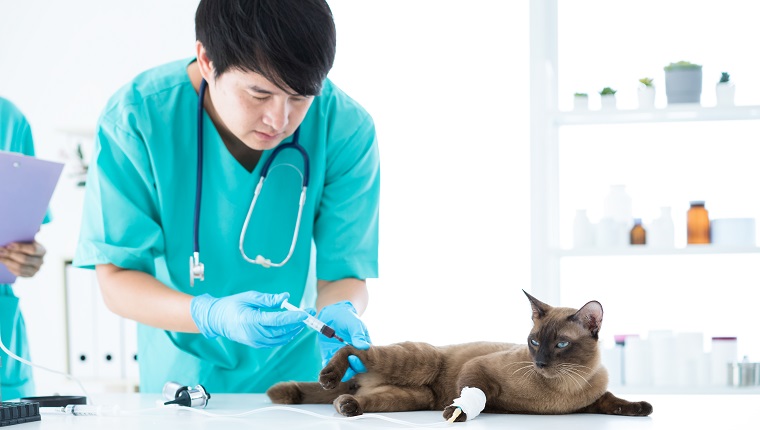Thrombocytopathies in cats are disorders where a cat’s blood platelets are unable to function normally. They can be inherited or acquired conditions.
Usually, blood platelets are able to bind and clot, but when this is unable to happen, a cat can suffer from excessive bleeding. This excessive bleeding can usually be seen in the mouth, nose, ears, and anus.
If you see signs that your feline suffers from unusual or excessive bleeding, then you must consult your veterinarian immediately. Here’s what you should know about the symptoms, causes, and treatments of thrombocytopathies in cats.
Symptoms Of Thrombocytopathies In Cats
Thrombocytopathies in cats mainly produce the symptom of bleeding that can be both excessive and spontaneous.
Some of the places where this bleeding most often occurs include:
- Mouth
- Gums
- Anus
- Ears
- Nose
Causes Of Thrombocytopathies In Cats

Thrombocytopathies in cats can be either inherited, meaning that a kitten is born with it, or acquired.
When it comes to inherited disorders, the cause is often von Willebrand disease. Chediak-Higashi syndrome is also another cause.
In terms of acquired platelet disorders, some of the most common causes include:
- Response to drugs, including antibiotics, anti-inflammatory medicine, and painkillers
- Liver diseases
- Cancer
- Parasitic diseases
- Kidney diseases
Veterinary Treatments
If you think that your cat is suffering from thrombocytopathies, then your veterinarian will want to carry out a full physical examination. A comprehensive series of tests will be part of this process, including blood and urine tests.
Your vet will analyze your cat’s blood while paying special attention to whether it can clot effectively.
When it comes to treatment, cats will need a blood platelet transfusion in many cases. Additionally, if there is an underlying condition causing the disease, the vet will also take steps to treat that specific condition.
While a cat is recovering at home, it is smart to limit their physical activity and switch their diet to mostly soft foods. Your vet can help advise you further on how to safely modify your feline’s diet.
Has your cat developed thrombocytopathies? What does your veterinarian recommend for treatment? Tell us all about it in the comments below.




